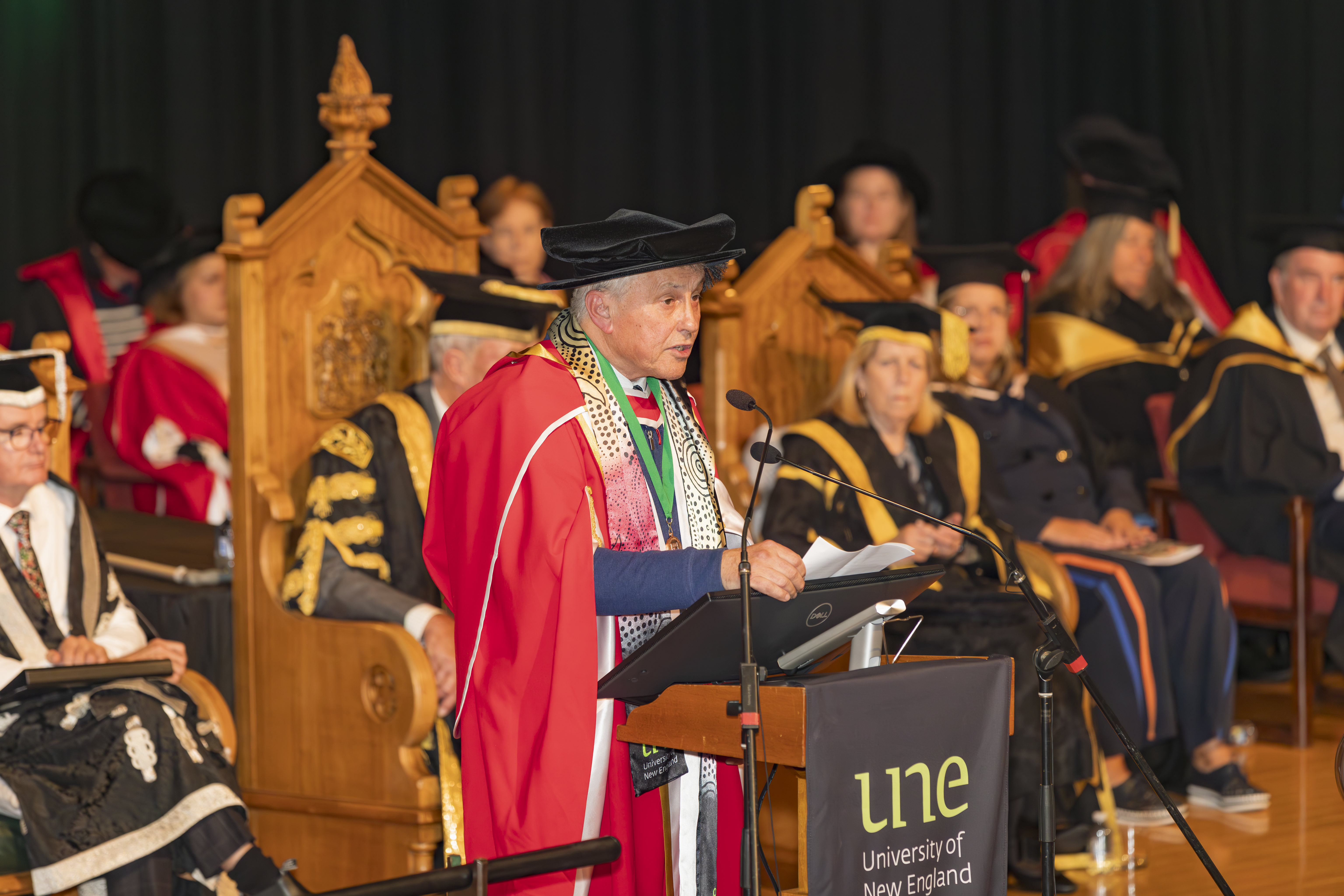It is said that success is a journey, not a destination.
If true, then Peter Smith, known as Pete within community, has had more success than most.
Completing a study journey that spanned over two decades, culminating in the completion of a PhD in Psychology at the University of New England (UNE), Pete is still travelling on with no sign of stopping anytime soon.
A member of the Gamilaroi Nation with ties to the Yuwaalaraay clan from the Walgett area, Pete was not aware of his Aboriginal heritage growing up, as he was born and raised in Sydney after his mother was removed from family as a child.
“For much of my young life my culture was hidden from me. However, I have been living back on Country for the past 12 years where the Gamilaroi people have accepted me as one of their own,” says Pete.
Beginning his tertiary studies at 18 years old, Pete has been studying on-and-off for the past 20 years and considers himself a study journey ‘lifer’.
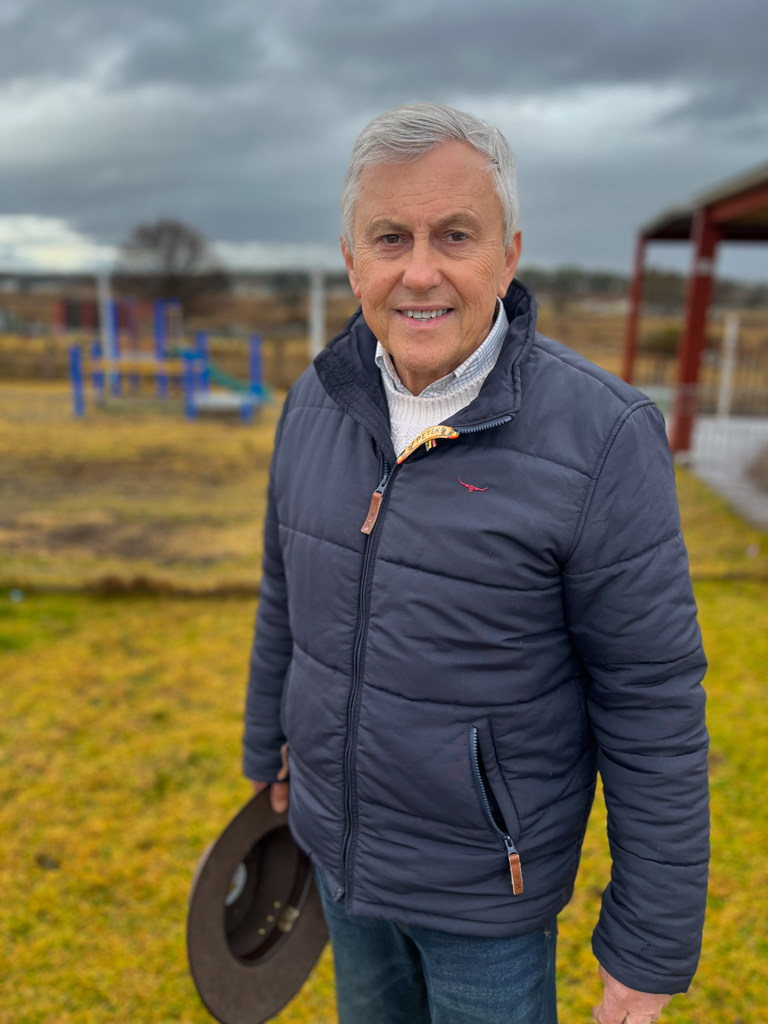 “I have always believed in the journey as a space where I could keep challenging myself and growing in many ways. I am a true believer in lifelong learning and the transformative impact of education,” he says.
“I have always believed in the journey as a space where I could keep challenging myself and growing in many ways. I am a true believer in lifelong learning and the transformative impact of education,” he says.
“My pathway to university began as a philosophy and theology student that was preparatory to a career in pastoral ministry. This foundation, at a young age, taught me the basics of self-directed learning, the skill of persevering through the hard times, and how to research and write essays and to think more analytically than I had in high school.
Pete in Tingha, NSW during town's first NAIDOC celebration.
“During this time, I studied Latin and Greek, the classical languages, which helped me to better understand English expression, grammar, and sentence construction. Many years later my Latin came in handy in studying the latinised terms in human physiology as part of studies in neuropsychology, so I was reminded that no learning is ever wasted.
“When I left pastoral ministry, I knew that I was never going to get a job as a theologian, but whatever I did I wanted to remain involved with people and helping them somehow. Pastoral ministry had brought me rich experiences often in hospital and palliative care situations that taught me so much about life and death, and how to journey with people in their most challenging moments.
“So, I returned to study by distance education, and discovered my love for psychology where I have remained for the past 25 years as a registered psychologist.”
After completing a master’s degree in forensic psychology, Pete finally thought his study journey had come to an end. However, through his work on delivering cultural competence workshops, a deep-seated desire to address systemic challenges in Indigenous mental health care motivated Pete to continue.
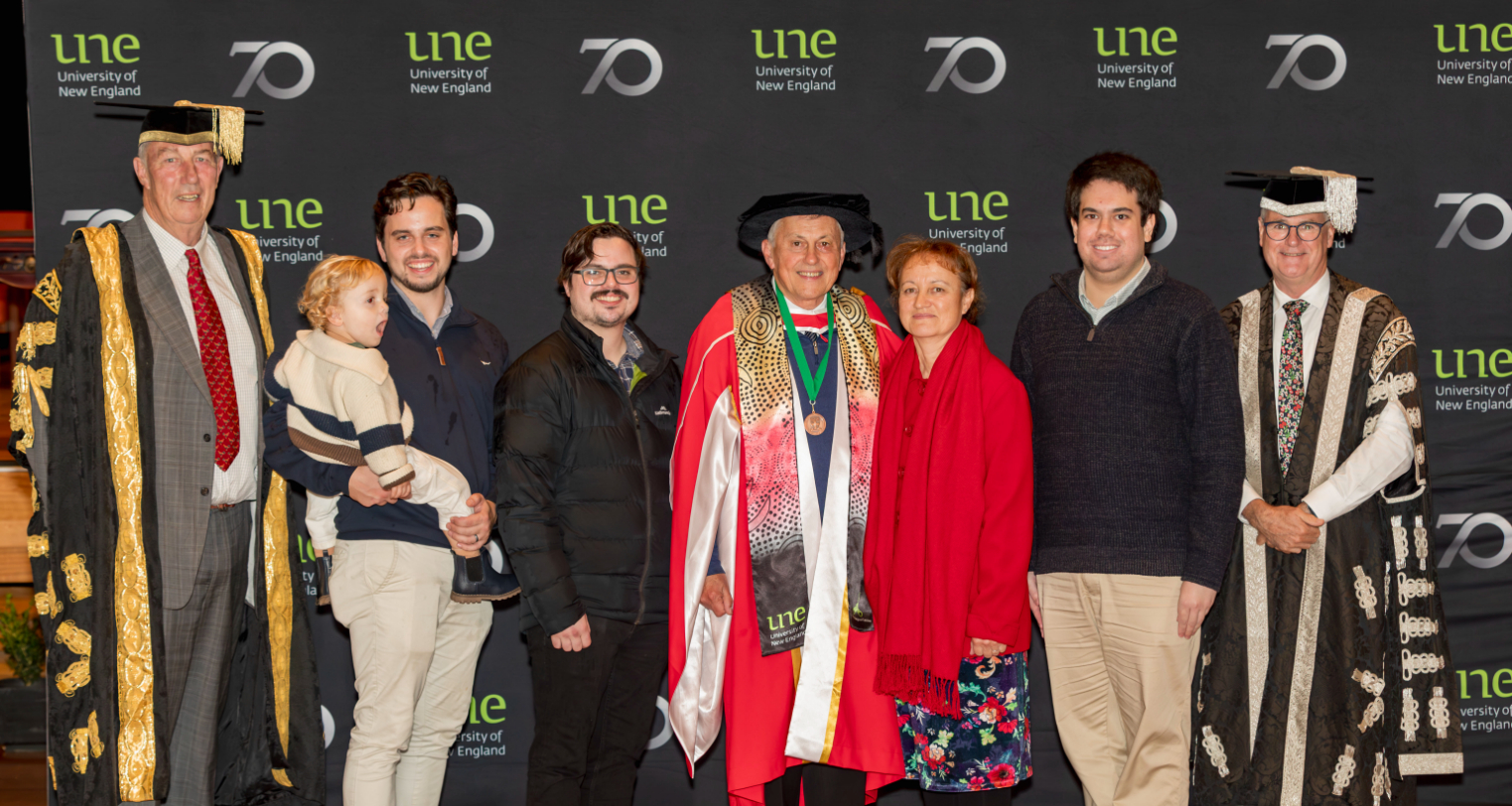
Image: Pete and family with Chancellor James Harris and Vice-Chancellor Professor Chris Moran.
So, in 2020, the journey begun once more with a PhD as a goal.
“Returning to do the PhD was not something that I had planned, and I had no further career ambitions in academia, but I had experienced more than 10 years of delivering cultural competence workshops to non-Indigenous psychologists for the Australian Indigenous Psychologists Association. This experience taught me that the way we had been providing mental health services for Aboriginal and Torres Strait Islander people was not culturally safe and our people were avoiding services despite having some of the worst mental health outcomes in Australia. I could also see among psychologist colleagues that such poor service delivery did not appear to be improving.
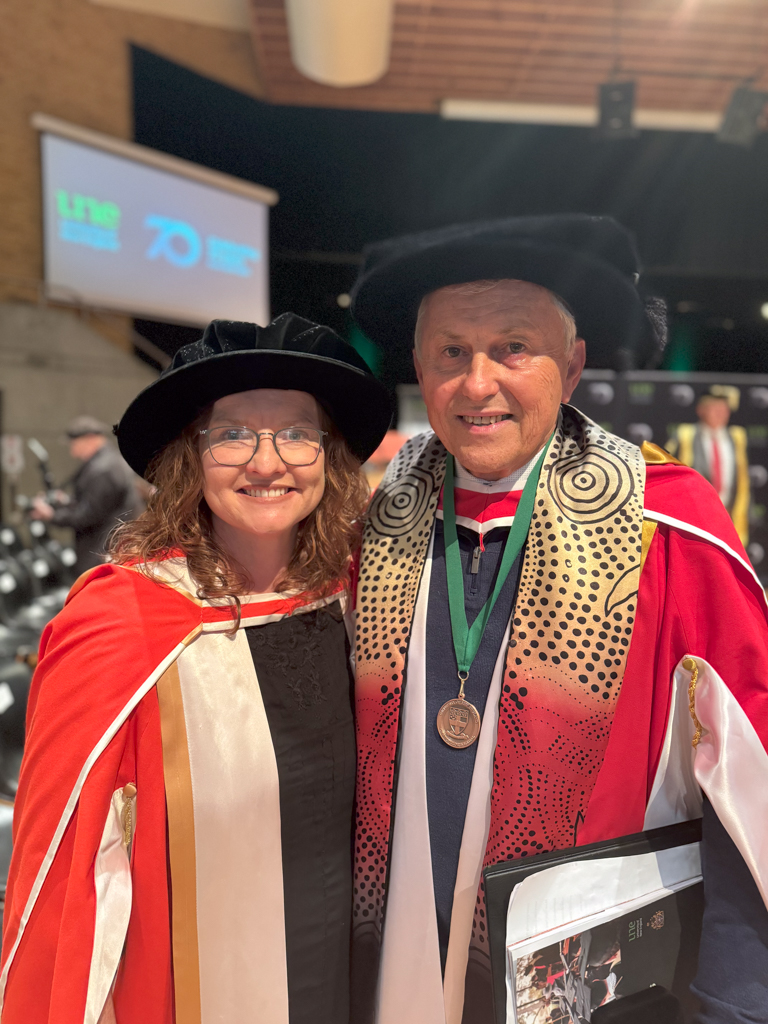 “From these observations I began thinking that I needed to do more and to be part of the change that I saw was desperately needed. And, so, I returned to UNE and shared with my soon-to-be principal supervisor, Kylie Rice, my thoughts about researching cultural responsiveness in order to bring about some improvement.”
“From these observations I began thinking that I needed to do more and to be part of the change that I saw was desperately needed. And, so, I returned to UNE and shared with my soon-to-be principal supervisor, Kylie Rice, my thoughts about researching cultural responsiveness in order to bring about some improvement.”
Despite the challenges presented by the COVID-19 pandemic, Pete's PhD experience at UNE was enhanced by the support of his supervisors, Professor Kylie Rice, Professor Kim Usher, and Nicola Schutte. Their guidance played a crucial role in Pete's academic achievements, culminating in his recognition as a Chancellor's Medal recipient for research excellence.
Pete with supervisor, Professor Kylie Rice at graduation.
“Being in lockdown and shut-in working on my own was never a problem for me. The life of a contemplative came naturally, and I relished the silence and the stillness and the wonderful opportunity to learn without distractions and interruptions. I saw this as an opportunity to be seized and enjoyed, and I am deeply appreciative that I was supported by a UNE Higher Degree by Research scholarship to financially support me during this time.”
Gradation is a wonderful experience that I find inspiring, and I love to look around at all the happy and hopeful faces on the graduates and their families on a day that is truly a celebration of achievement at the end of a long and sometimes hard road. I often wonder where graduation will take people and what they will make of their lives and careers.
“Graduation for me, means not only celebrating getting to the finish line, but it is also a time to reflect on what the journey has meant and what it has taught me, because I know I am richer for the experience. It means that as an alumnus I will proudly have connection with UNE for the rest of my life, which also means in some sense a connection to the land of the Anaiwan Nation, whose people I acknowledge and thank for allowing me to achieve on their Country what I set out to do.”
Looking ahead, Pete remains committed to promoting cultural responsiveness and advocating for equitable access to mental health services for Indigenous communities across Australia.
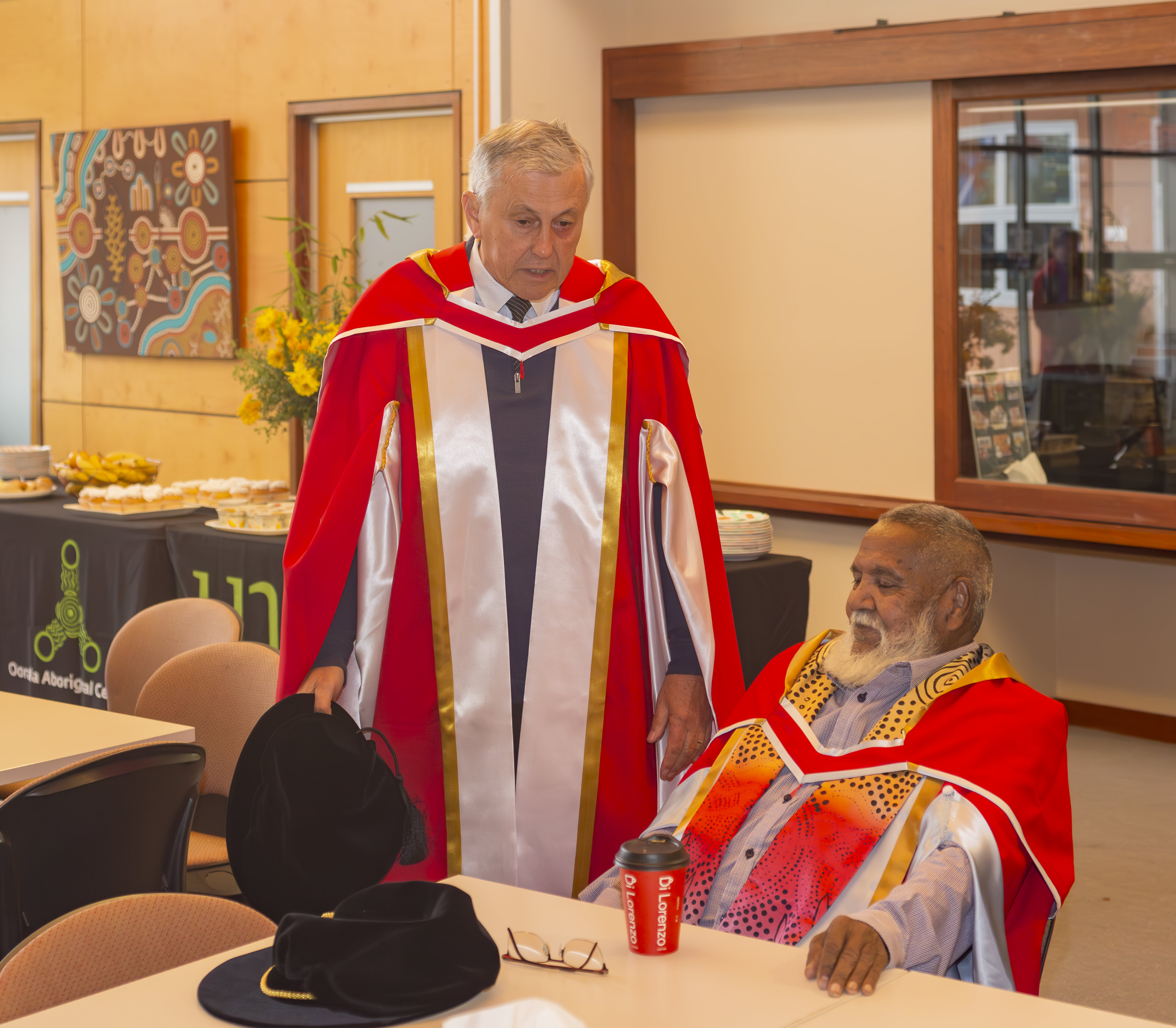
Image: Pete with Uncle Colin Ahoy at graduation.

